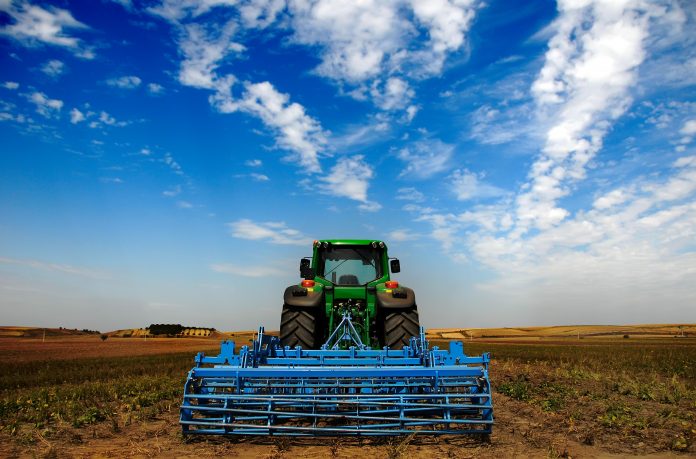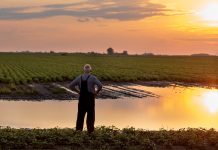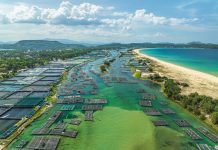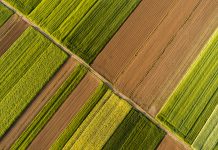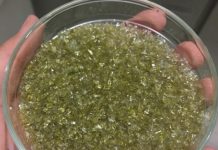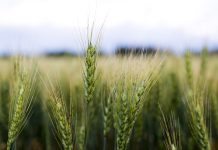Geneviève Savigny, Member of the European Economic and Social Committee, argues that agroecology is the way towards sustainability in Europe’s farming
Farmers and agricultural enterprises are facing many challenges: not only are they extremely dependent on weather and environmental conditions, but their products are also often subject to major fluctuations in price. It is also difficult, especially for smaller farms, to compete on a deregulated market against stronger players from inside and outside Europe.
These challenges, but also growing consumer awareness of healthy nutrition and the resulting increase in demand for fresh natural food, have already led some farmers to change their production and market behaviour.
Organic/environmentally-friendly farming
Those farmers practice organic (labelled) or other environment-friendly (without a label) farming and try to sell their products directly to consumers.
Such an approach has several advantages. Firstly, it reduces transport, eliminates intermediate trade and the small farmer can profit directly from the sale of their products, which increases their income and ensures the continuity of their business. Depending on the size of the farm, it also offers the possibility to create jobs in the local community and helps revive rural areas.
At the same time, direct sales offer consumers the guarantee of buying fresh and healthier products. We should also not underestimate the educational effect in terms of the value that the direct relationship between the consumer and producer has.
Shorter supply chains & agroecology
At the European Economic and Social Committee, we believe that shorter supply chains and agroecology are the future for sustainable farming in Europe.
Agroecology is defined by the Food and Agriculture Organisation of the United Nations (FAO) as an integrated approach that simultaneously applies ecological and social concepts and principles to the design and management of food and agricultural systems. It seeks to optimise the interactions between plants animals, humans and the environment while taking into consideration the social aspects that need to be addressed for a sustainable and fair food system.
I am convinced that only a holistic approach will help guarantee both food security and healthy nutrition as well as the conservation of our agricultural resources for the future. The focus should be on short supply chains and agroecology.
Create local food systems
The challenge is to empower operators to create local food systems based on local governance; and where short supply chains are not possible, European quality labels can provide identification and make it easier for consumers to choose.
In this regard, agroecology can play an important role, because agroecology is based on 10 principles, defined by the FAO:
- Diversity, synergy, efficiency, resilience, recycling, co-creation and sharing of knowledge;
- Human and social values, culture and food transitions; and
- Circular and solidarity economy, responsible governance.
They are interlinked and interdependent and should guide countries in their endeavour to transform their food and agricultural systems into sustainable agriculture on a large scale and at the same time achieve multiple Sustainable Development Goals (SDGs). In this regard, I would like to mention a recent publication of the Institute for Sustainable Development and International Relations (IDDRI), which shows that it will be possible to feed all of Europe’s population by 2050 through a gradual agroecological transformation incorporating livestock breeding, crops and tress and achieving the zero carbon emissions target.
Academic studies and development organisations have proved that the advantages are obvious for both farmers and consumers, including greater soil fertility, lower production costs, greater decision-making autonomy, enhanced professionalism, health and nutritional quality of food and water and preservation of biodiversity and landscapes.
Applying agroecology to agriculture represents a paradigm shift towards fighting climate change, rebuilding living ecosystems and protecting water, soil and all the resources that agricultural production depends on. It is important to put a greater focus on short supply chains and agroecology.
Agroecology action plan
In order to roll out the agroecology project across Europe, we propose an action plan, which needs to be both structured multifaceted, involving the regional, national and European Union (EU) level. As a first step, we propose to direct the existing programmes, including within the Common Agricultural Policy (CAP), towards supporting measures in agroecology and short supply chains.
In particular, farmers will need educational support regarding transformation, direct sales and agroecology, as well as access to finance. The creation of networks should foster knowledge-sharing and exchange between farmers. There will also be a need to adapt legislation, especially food legislation and labelling to small-scale production. Last but not least, Europe needs more research and innovation regarding producers’ needs in short chains and agriculture.
A comprehensive food policy, which the EESC has been advocating for years, could form the framework of the action plan.
If we are to take the climate goals seriously and want to preserve the fertility of our soil, an environmentally friendly farming model is the only solution. After all, farming can only continue if our natural resources are preserved.

